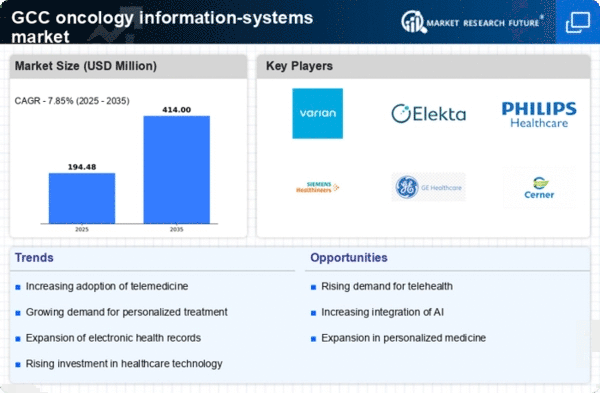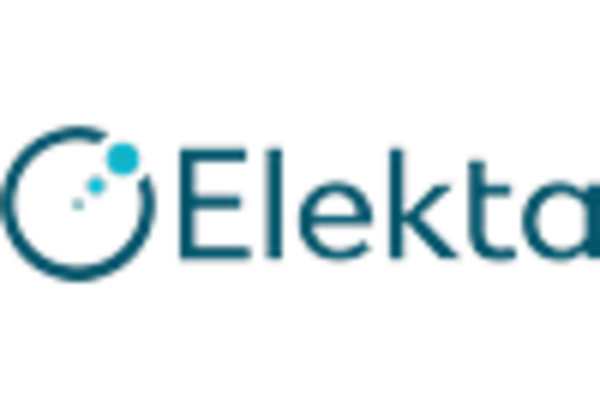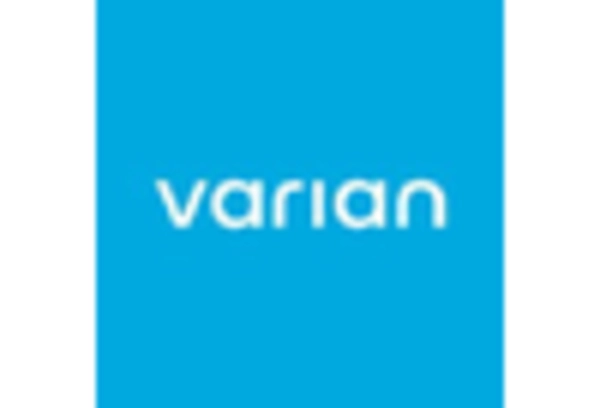Rising Cancer Incidence in GCC
The oncology information-systems market is growing due to the rising incidence of cancer across the GCC region. According to health statistics, cancer cases are projected to rise by approximately 20% over the next decade. This alarming trend necessitates advanced information systems to manage patient data, treatment protocols, and outcomes effectively. As healthcare providers seek to enhance their capabilities in oncology care, the demand for sophisticated information systems is likely to surge. The integration of these systems can facilitate better patient management, streamline workflows, and improve overall treatment efficacy. Consequently, the oncology information-systems market is positioned to expand significantly as healthcare institutions invest in technology to address the growing cancer burden.
Government Initiatives and Funding
Government initiatives aimed at improving healthcare infrastructure in the GCC are playing a pivotal role in the oncology information-systems market. Various national health programs are allocating substantial budgets to enhance cancer care services, with funding reaching upwards of $500 million annually. These investments are directed towards the development and implementation of advanced oncology information systems that can support data management, patient tracking, and treatment planning. As governments prioritize cancer care, the oncology information-systems market is likely to benefit from increased funding and support, fostering innovation and the adoption of cutting-edge technologies in healthcare facilities.
Technological Advancements in Healthcare
The oncology information-systems market is significantly influenced by rapid technological advancements in healthcare. Innovations such as telemedicine, big data analytics, and machine learning are transforming how oncology care is delivered. For instance, the integration of big data analytics into oncology information systems allows for more personalized treatment plans, improving patient outcomes. The market is projected to grow at a CAGR of 15% over the next five years, driven by these technological advancements. As healthcare providers in the GCC adopt these technologies, the oncology information-systems market is expected to expand, offering enhanced capabilities for managing complex cancer cases.
Increasing Demand for Patient-Centric Care
There is a growing emphasis on patient-centric care within the oncology information-systems market. Patients are increasingly seeking personalized treatment options and better engagement in their healthcare journey. This shift is prompting healthcare providers to adopt information systems that facilitate communication, education, and shared decision-making. The market is responding to this demand by developing systems that enhance patient interaction and provide real-time access to treatment information. As a result, the oncology information-systems market is likely to see a rise in solutions that prioritize patient needs, ultimately improving satisfaction and treatment adherence.
Collaboration Between Healthcare Providers and Tech Firms
The oncology information-systems market is benefiting from increased collaboration between healthcare providers and technology firms. Partnerships are emerging to develop innovative solutions that address the complexities of cancer care. These collaborations often lead to the creation of tailored information systems that integrate clinical workflows with advanced analytics. As healthcare providers in the GCC seek to enhance their operational efficiency and patient outcomes, such partnerships are expected to grow. This trend indicates a promising future for the oncology information-systems market, as it aligns technological capabilities with the specific needs of oncology care.
















